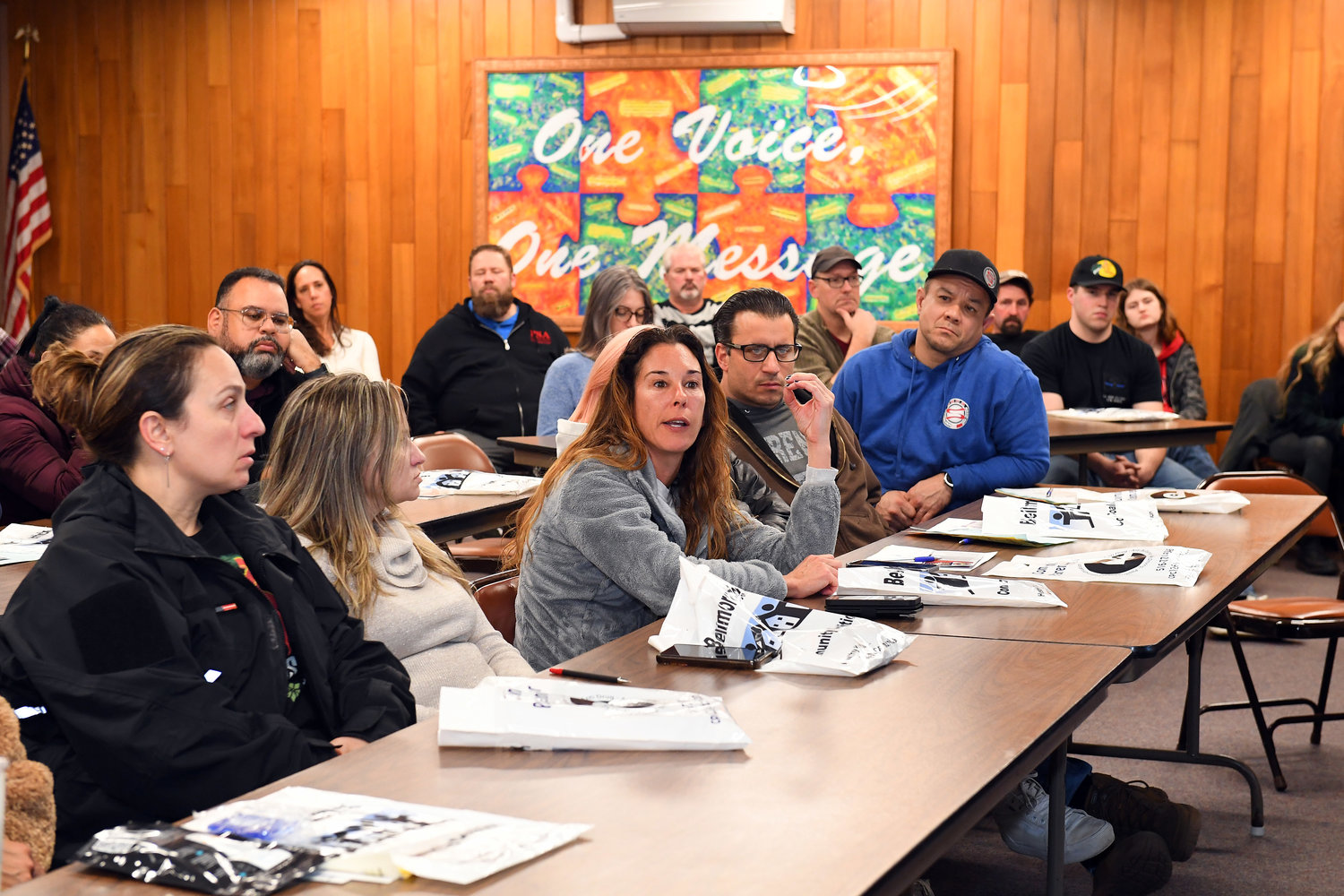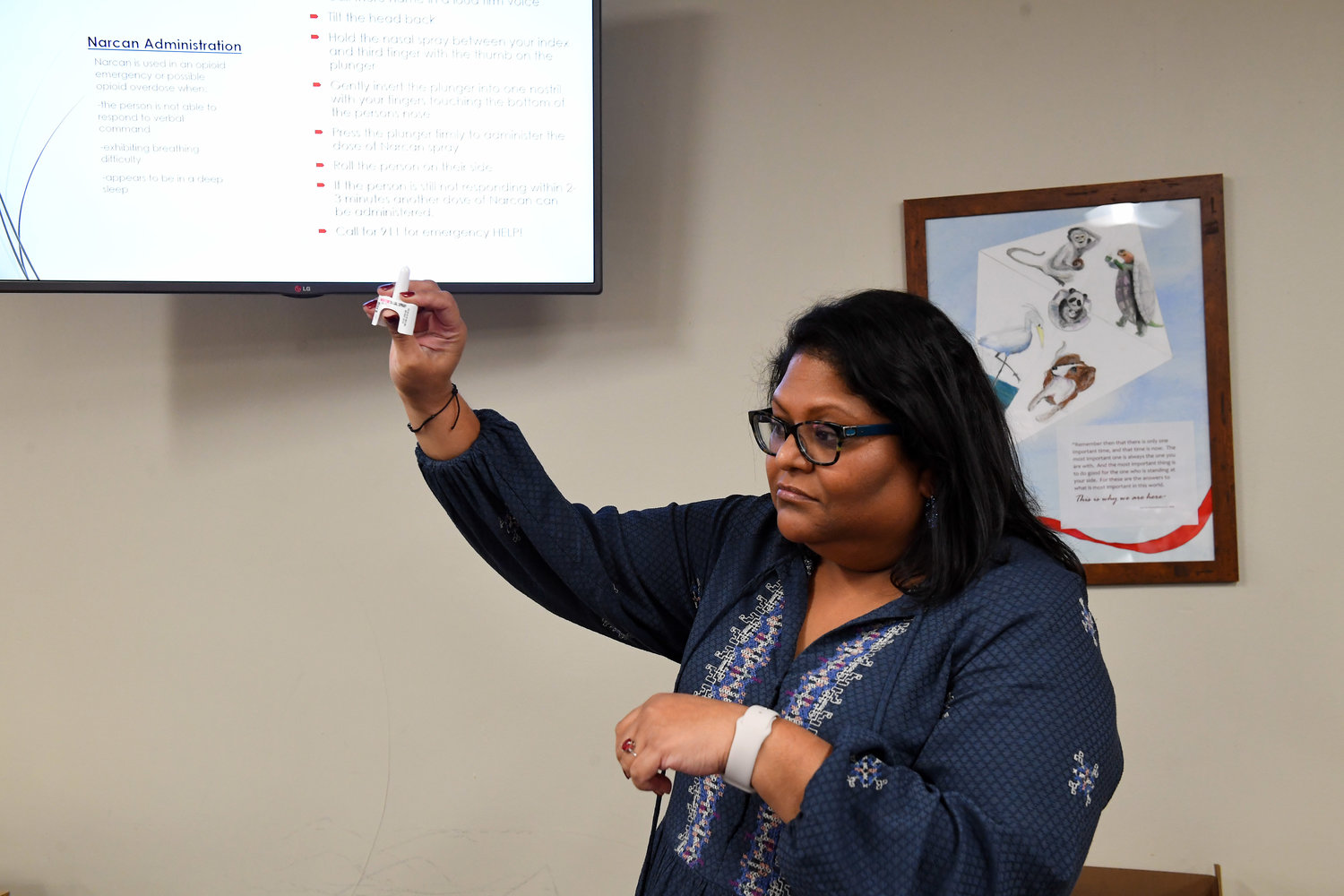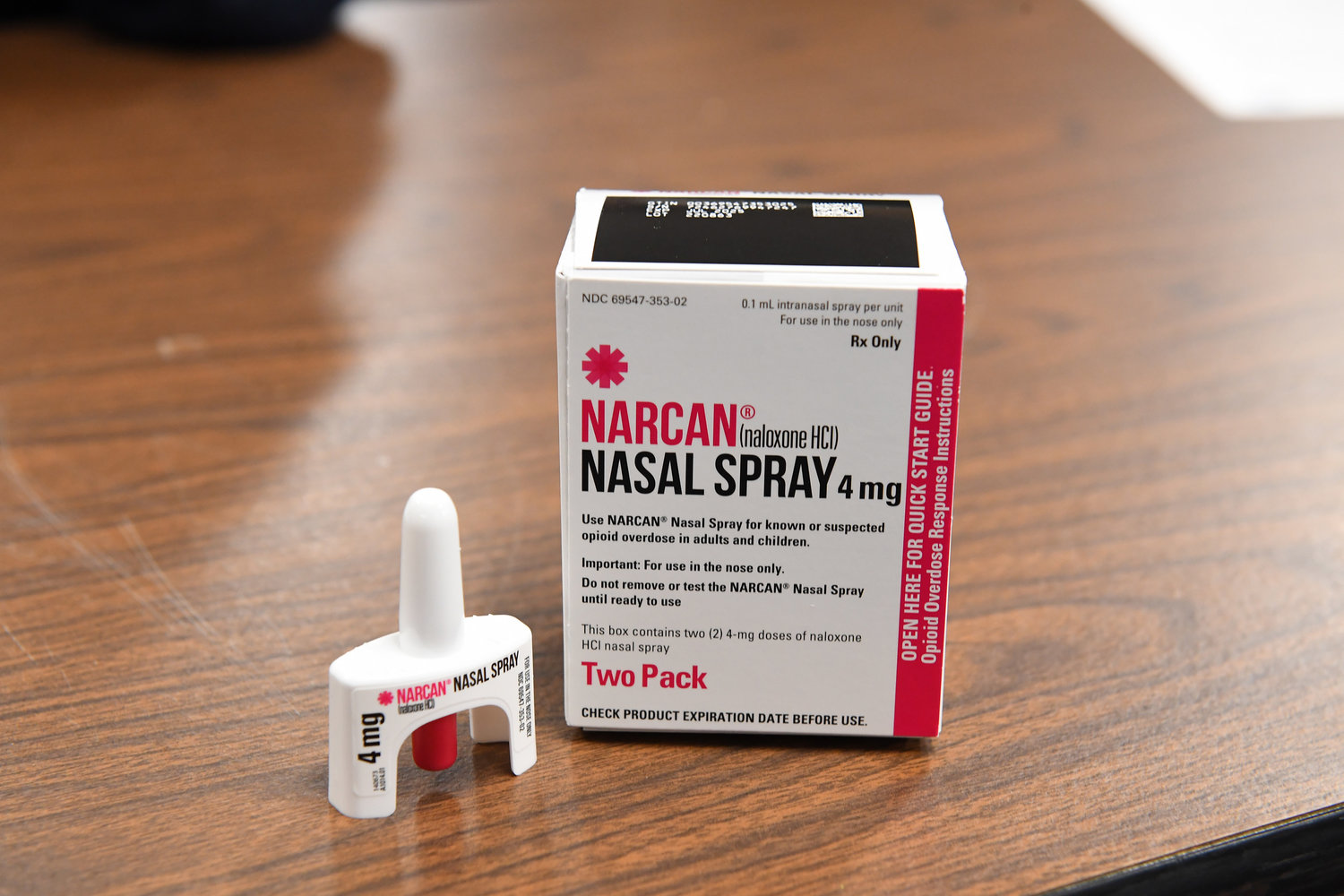Friday, July 26, 2024
Learn how the Bellmore-Merrick community is combatting the opioid epidemic
Community Narcan training held to battle rising deaths, overdoses across L.I.
At the Bellmore-Merrick Community Parent Center’s Narcan Training last week in the Brookside School, one thing was abundantly clear: an opioid overdose can effect anyone. With the number of overdoses and opioid-related deaths on a steady rise post-coronavirus pandemic, prevention is crucial, as is knowing how to spot an overdose, and how to administer naloxone, a medication that reverses the effects of an overdose.
Naloxone, more commonly known by the brand name, Narcan, comes in the form of a nasal spray, and is easy to administer to someone overdosing on an opioid. The parent center, in partnership with the Bellmore-Merrick Central High School District, the hamlets’ four elementary school districts, several local politicians, and the Tempo Group, a counseling center, hosted a Narcan training for community members on Jan. 18.
In a presentation hosted by Wendy Tepfer, director of the parent center, and Cindy Wolff, executive director of the Tempo Group, nearly 100 attendees learned vital information about the opioid epidemic, and how to safely and effectively deliver a dose of Narcan.
“We’re in the midst of an opioid epidemic,” Tepfer said at the training. “It has caused a record number of overdoses and fatalities across Long Island, which mirrors what’s happening across our state and across our country.
“An opioid addiction does not discriminate,” she added. “To combat the number of Long Islanders that are dying from fentanyl, heroin, and other opioid overdoses, we really have tried over the years to educate parents and teens about the dangers of substance abuse, opioid addiction, and to offer tips on how to recognize signs and symptoms.”
Wolff, the director of the Tempo Group since 2016, shared that it has offices located directly within the district, at the Brookside School. A community counseling and addiction treatment center, it hosts various workshops with students and parents throughout the year on a variety of topics.
At the training, Wolff explained that the rise in opioid-related deaths and overdoses began in the 1990s, with a second wave starting in 2010. The third wave began in 2013 because of synthetic opioids, particularly illicitly manufactured fentanyl, which is 50 times more potent that heroin.
Opiods are painkillers, Wolff explained, and many can be found in homes, because they are prescribed by medical professionals to people recovering from surgeries, or to those dealing with other conditions. Because they can be found in homes, Wolff added its important to discard medications properly if they are no longer being used, in effort to avoid an accidental overdose.
Oxyocodone, hydrocodone, morphine and methadone are just some commonly known and prescribed opioids. When one overdoses on an opioid, including illegal ones — like heroin or fentanyl — it can appear as shallow breathing, clammy skin, vomiting or gurgling noises, or blue fingertips and lips. Oftentimes, someone overdosing cannot be awakened and is unable to speak.
An overdose occurs when one’s body becomes saturated in an opioid, Wolff explained. The brainstem, and receptors within a body become flooded with whichever opioid was taken.
“The market for illicitly manufactured fentanyl continues to change,” Wolff said, “and it can be found in combination with heroin, counterfeit prescriptions, cocaine, and actually now, with tons of other prescription medications — kids on Aderall or other prescribed medications are getting fake pills that are laced with fentanyl.”
Aderall is a commonly prescribed medication to those with attention deficit disorders, but it has been known to circulate schools and college campuses, as kids without a prescription will take it to help them focus on an assignment. But sometimes, if its coming from an unknown source, consequences can be dangerous — and deadly.
Wolff said the Covid-19 pandemic led to a significant and steady rise in overdoses, and unfortunately, most are seen among young adults.
“This is incredibly troubling,” Wolff added. “You do not need to be addicted to an opioid to have an overdose. Part of what’s going on is that kids are thinking they’re getting something else — but they’re getting fentanyl. They are purposely being targeted. We know that drug dealers are not equitable.”
Wolff said Narcan is approved by the Food and Drug Administration as a treatment for a known or suspected overdose.
If you’re around someone who you suspect is overdosing, Wolff said before Narcan is even administered, it is crucial that 911 is called. Even if someone arouses from an overdose, they are still in need of medical attention.
The person receiving Narcan should be flat on the ground, and with a simple push of your thumb, the entire dose of it will come out of the spray nozzle. Even if it appears that the person is not breathing, Wolff said the Narcan should still work.
Everyone in the audience received a kit, which included two doses of Narcan, because oftentimes, a second — or even third dose — has to be given in order to reverse the effects of an overdose. A CPR mouth guard was included, in case the person administering the dose was certified in mouth-to-mouth resuscitation.
Wolff stressed that Narcan will only work on an opioid overdose — it cannot reverse the effects of a different type of overdose. With that said, she added that Narcan will not harm someone if they are overdosing on a different type of drug.
Prevention is key, Wolff said. For any parents in the room, Wolff encouraged them to have open conversations with their children about drug use.
“I am in the business of treatment,” Wolff said. “I am a firm believer that the best medicine is prevention. Have conversations now — do not wait for something to happen. There should be no doubt about how you feel.”
The Tempo Group has their Merrick offices at 1260 Meadowbrook Road. If kits expire, Wolff said they are happy to resupply them, with a quick refresher training.
To learn more about opioid addiction, the treatment center, services offered, and outreach within Bellmore-Merrick schools, call the Tempo Group at (516) 374-3671.











